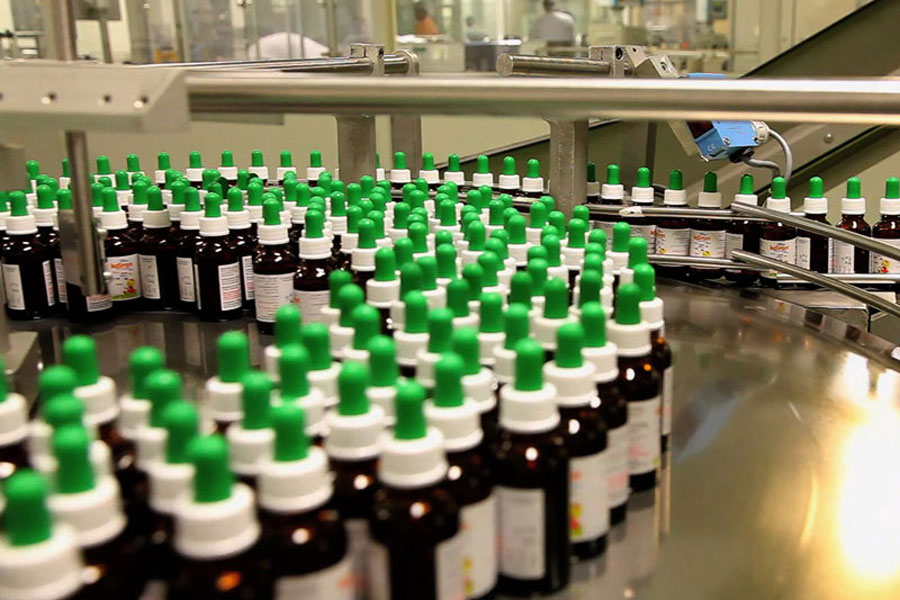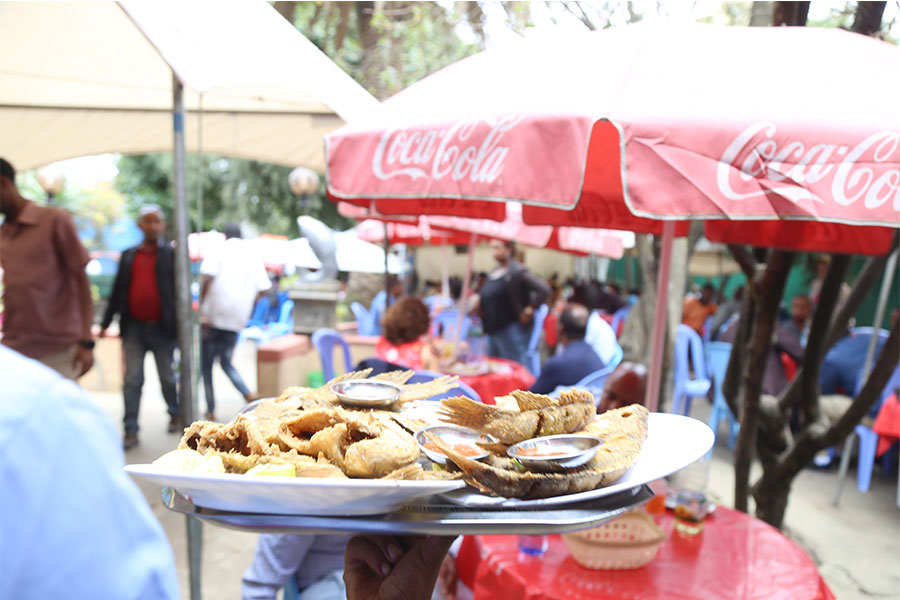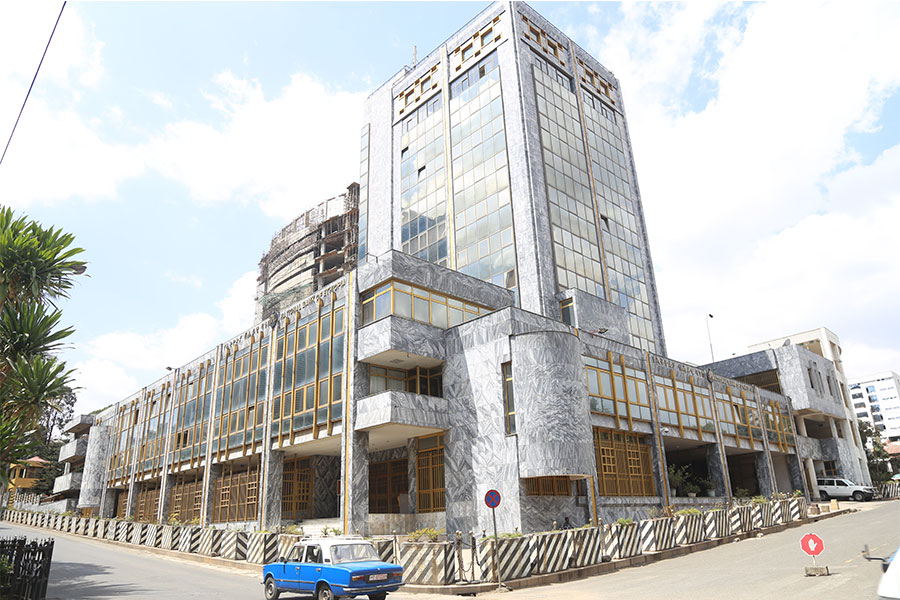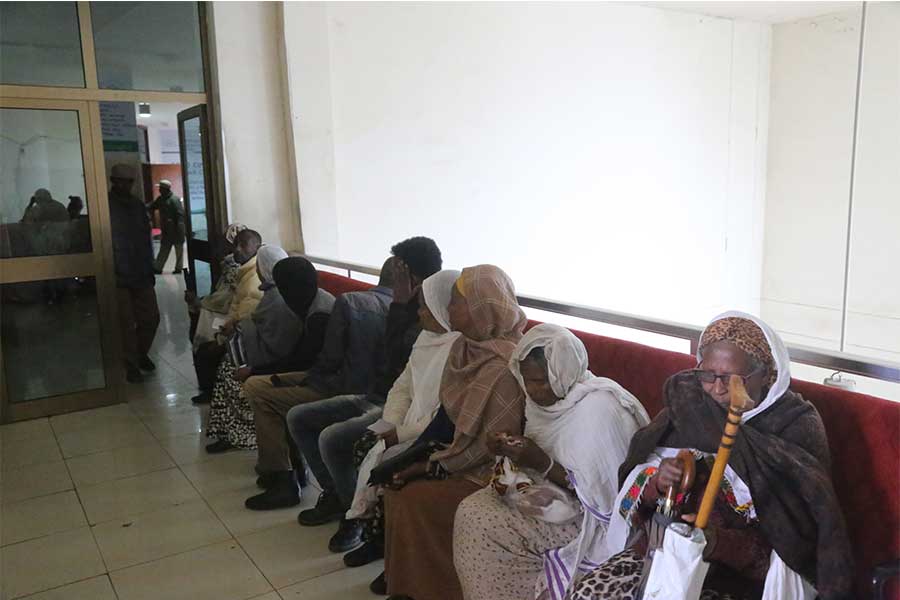
Fortune News | Oct 27,2024
Officials at the Ministry of Agriculture are working on a bill to regulate the poultry industry as farms struggle with an unidentified disease decimating their flocks. The bill proposes the establishment of designated poultry market centres.
Officials hope to regulate the industry to control the spread of disease. Experts have been working on the bill for the last six months, anticipating the passing of legislation by the early days of the next budget year. The proclamation to govern the production and marketing of poultry products will be the first for the industry. It includes provisions that criminalise the marketing and distribution of "unsafe" poultry products. Violations could result in 200,000 Br fines and lead to five years' imprisonment.
The bill comes to the surface at the time of the spread of an unidentified disease affecting chickens across the country. Last month, the Ministry enacted an embargo on poultry products in hopes of mitigating its effects. The authorities temporarily banned the marketing of poultry products in 2006, following a scare of the avian flu spreading worldwide.
“We're diagnosing the disease to identify its origin,” said Tsigereda Fekadu, director of poultry development.
However, according to people following the issue, the authorities plan to relax the restrictions after inspecting poultry farms for susceptibility to the disease. Farms inside "free zones" will be allowed to market their products. The Ministry is also preparing a manual that will impose procedures to be followed in the event of an endemic, Tsigereda disclosed.
Industry insiders say establishing market centres can help trace the origin of disease in a short period.
Negasi Amha is a lecturer at the Haromaya University School of Animal & Range Sciences who has researched the poultry industry. He warns the market centres may be harmful to some in the industry.
"Limiting transactions to market centres could push small poultry farms out of business," he said.
A small poultry farm run by Temesgen Berhe and his two friends in Sebeta, 20Km southwest of the capital, could be one of these. Opened six years ago, the farm has been operating under capacity due to rising costs for feed and a lack of vaccines. Two weeks ago, things took a turn for the worse when Temesgen lost 2,000 broiler and layer chickens to the mysterious disease. Inspectors from the town's agricultural research centre have taken samples from the dead chickens.
“We haven’t heard from them since," Temesegn told Fortune.
Dendin Debabu (PhD) is the general manager of Alema Koudjis Plc, one of the oldest commercial poultry farms in the country. It hatches 20,000 chicks and processes 10,000 chickens a week at its estate in Bishoftu, 45Km south of Addis Abeba. Earlier this year, the company lost 30,000 broiler and layer chickens to fowl cholera – a highly contagious bacterial disease. It causes the deaths of an estimated one million chickens every year.
Dendin and his employees tend to a stock of 200,000 broiler chickens and 85,000 layer chickens ready for the market.
"We're unable to sell due to the restrictions," he told Fortune.
Negasi attributed officials' failure to diagnose the disease in time to a lack of qualified workforce and laboratories.
The industry has been on the back foot over the past couple of years. It contends with supply chain disruptions due to the COVID-19 pandemic, ballooning feed costs, and a lack of forex needed to import parent stock. Although two dozen large-scale poultry farms are registered, less than 10 are currently in business. They produce at less than half their capacity. Last year, commercial poultry farms under the Ethiopian Poultry Producers & Processors Association declared over 123 million Br in losses due to the pandemic.
Industry players have long urged about the inadequate feed supply and rising prices, which they say are among the livestock sector's main bottlenecks. In recent years, drought-induced feed shortages in pastoral areas have exacerbated the cost of animal feed. A quintal of cattle feed has nearly tripled to around 3,000 Br over the past year.
The price hikes on soybean and corn are battering the industry, according to Tewodros Kassa, president of the lobby group.
Many commercial poultry farmers have resorted to disposing of chicks to avoid further losses from feed costs. These farms have disposed of around three million chickens.
Four months ago, the federal government waived 60pc in customs duties and value-added tax (VAT) on 16 imported feed components. Although the exemption is meant to relieve the livestock sector, industry players say it has little impact as the imported ingredients account for less than a tenth of the national feed demand.
PUBLISHED ON
Jul 02,2022 [ VOL
23 , NO
1157]

Fortune News | Oct 27,2024

Fortune News | Nov 11,2023

Agenda | Apr 13,2019

Viewpoints | Mar 18,2023

Fortune News | Nov 30,2019

Radar | Jul 09,2022

Featured | Sep 10,2021

Agenda | Aug 24,2019

Fortune News | Apr 17,2020

Radar | May 25,2019

Dec 22 , 2024 . By TIZITA SHEWAFERAW
Charged with transforming colossal state-owned enterprises into modern and competitiv...

Aug 18 , 2024 . By AKSAH ITALO
Although predictable Yonas Zerihun's job in the ride-hailing service is not immune to...

Jul 28 , 2024 . By TIZITA SHEWAFERAW
Unhabitual, perhaps too many, Samuel Gebreyohannes, 38, used to occasionally enjoy a couple of beers at breakfast. However, he recently swit...

Jul 13 , 2024 . By AKSAH ITALO
Investors who rely on tractors, trucks, and field vehicles for commuting, transporting commodities, and f...

Oct 25 , 2025
The regulatory machinery is on overdrive. In only two years, no fewer than 35 new pro...

Oct 18 , 2025
The political establishment, notably the ruling party and its top brass, has become p...

Oct 11 , 2025
Ladislas Farago, a roving Associated Press (AP) correspondent, arrived in Ethiopia in...

Oct 4 , 2025
Eyob Tekalegn (PhD) had been in the Governor's chair for only weeks when, on Septembe...